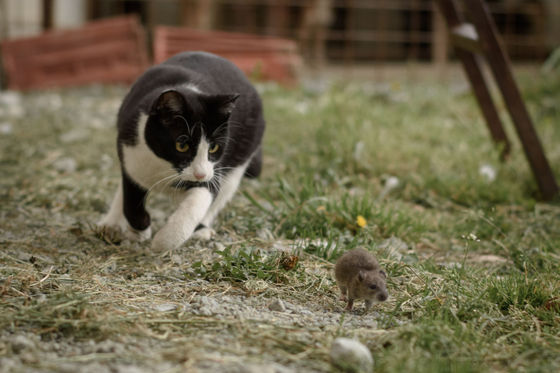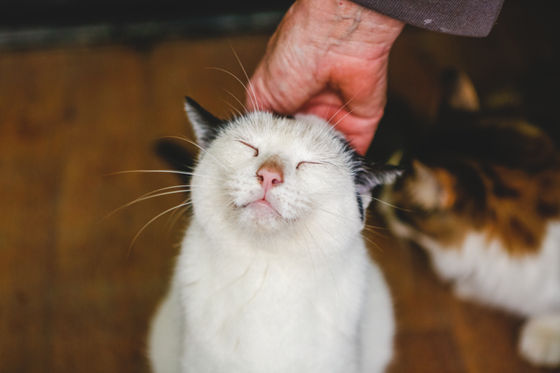Why do cats bring home the animals they kill?

Although it is not recommended for the health and safety of cats, some people who allow their cats to roam freely between the outdoors and the house may have been surprised to find that their cat brought home a dead small animal. Science news site Live Science asked two experts about the reasons for this cat behavior.
Why do cats bring their owners dead animals? | Live Science
According to Stephanie Riff, veterinarian and medical director of Pure Paws Veterinary Care, a pet hospital in New York, cats were domesticated more than 10,000 years ago. Despite this, cats have not lost their hunting instinct to this day. For this reason, Riff says, 'Cats are natural predators.'
The question here is why cats not only catch small animals, but also take the trouble to bring them home. Some cats eat their prey inside the house, but many lose interest after catching them and leave them at the entrance, on the floor, or even next to the owner's pillow.

There are several theories as to why cats behave this way, says Emmanuel Baudry, an urban ecologist at Paris-Saclay University. The main one is that it's a maternal behavior. In the wild, mother cats go out hunting and bring back prey for their kittens. This isn't just for food, it's also for play, hunting practice, and teaching them how to spot prey.
'So in the cat-owner relationship, cats may see us as the 'slightly clumsy kitten,'' Baudry said.
However, this doesn't mean that the cat is looking down on you. 'In fact, it's a compliment in a way, because it means your pet is comfortable in your home and sees you as a member of the family,' says Ryff. Another theory, says Ryff, is that cats bring back prey because they feel safe in the home, where they can hide their prey and eat quietly.

Some cats hunt frequently, while others rarely do so. This tendency is said to be related to three main factors: personality, environment, and care. In a study published in 2023, Baudry et al. focused particularly on cat personality.
They found that cats that their owners perceived as dominant, aggressive, and active were more likely to bring home prey. In contrast, cats that were affectionate and timid towards their owners were less likely to bring home prey.
The study also confirmed that cats' hunting behavior depends on both the environment and the amount of time they spend outdoors: Cats living in the countryside have a larger range and are more likely to find prey than their urban counterparts, so urban cat owners were less likely to have their cats return with prey than their rural counterparts.
Regardless of what your cat thinks, it's no fun to see dead mice, birds, and insects on the floor, and Ryff suggests keeping your cat outside and not feeding birds near the house. In that case, you'll need to provide your cat with toys to chase and pounce on to satisfy its hunting instincts.
Experts say that keeping cats indoors is good for both the cats and the environment, because the prey they eat can carry parasites and infectious diseases.Research has also shown that cats kill 30 billion animals a year in North America alone, and it has also been reported that cats are driving wild animals to extinction, especially in islands and other areas.
Cats are killing so many wild animals that rare animals are at risk of extinction - GIGAZINE

While it's a natural instinct for cats to bring home dead animals and it can be a sign of affection, 'if you don't want to see your cat do this, you have to restrict their behavior,' Ryff said.
Related Posts:






